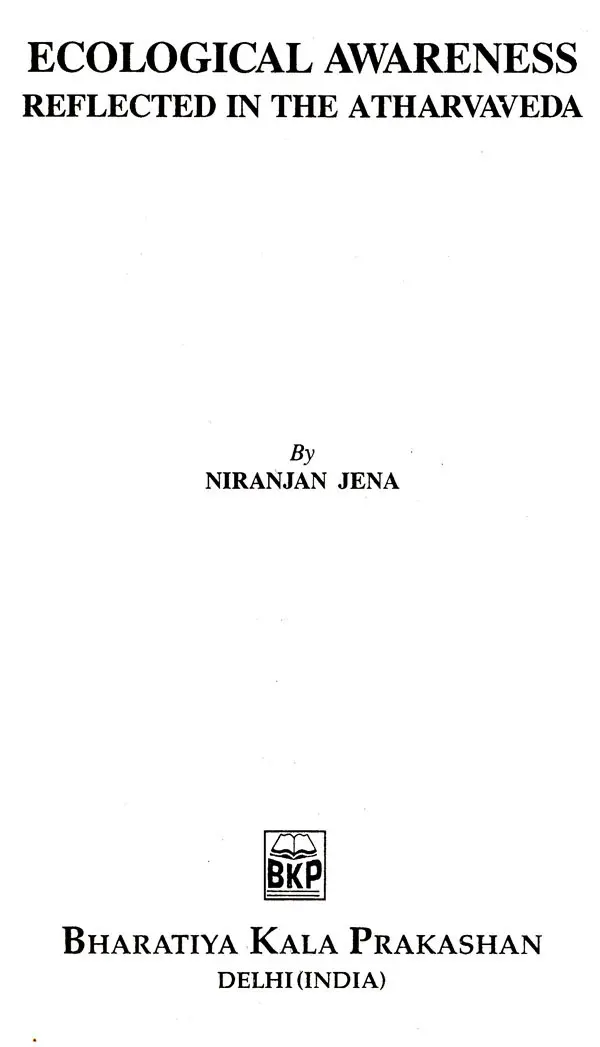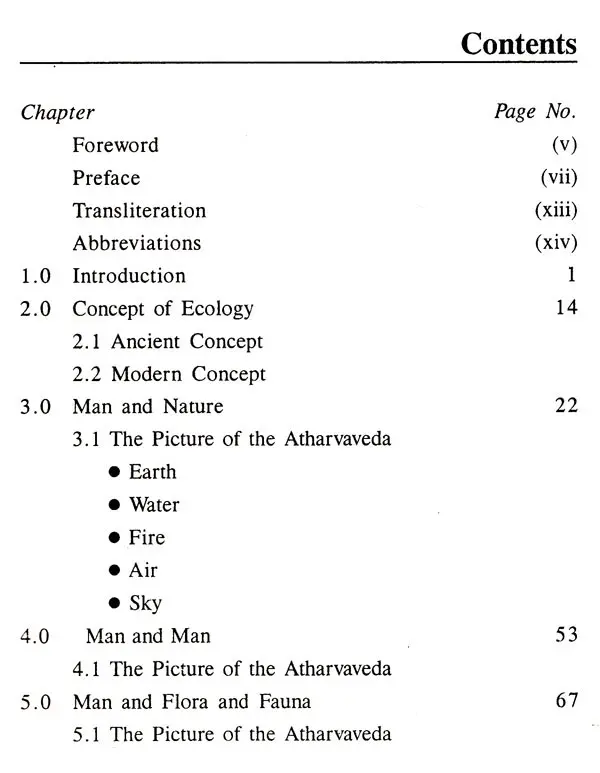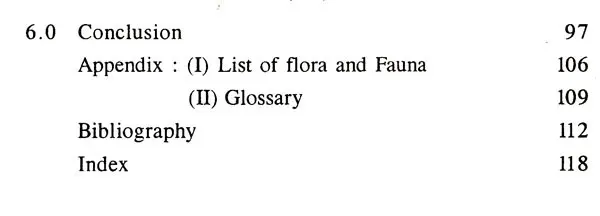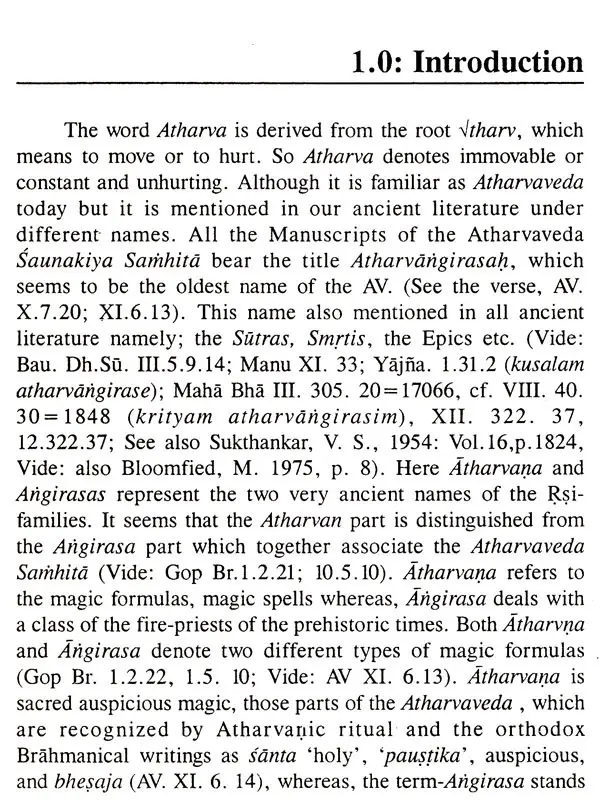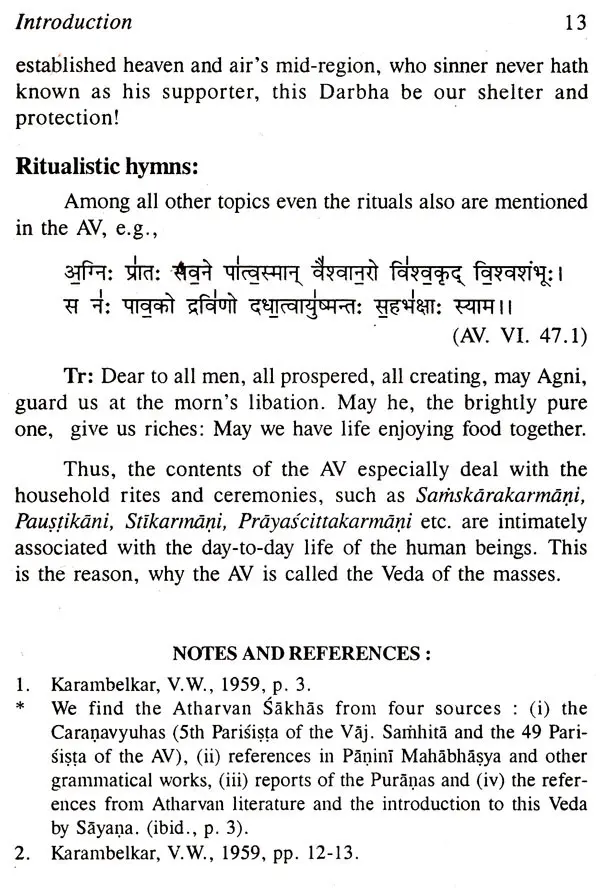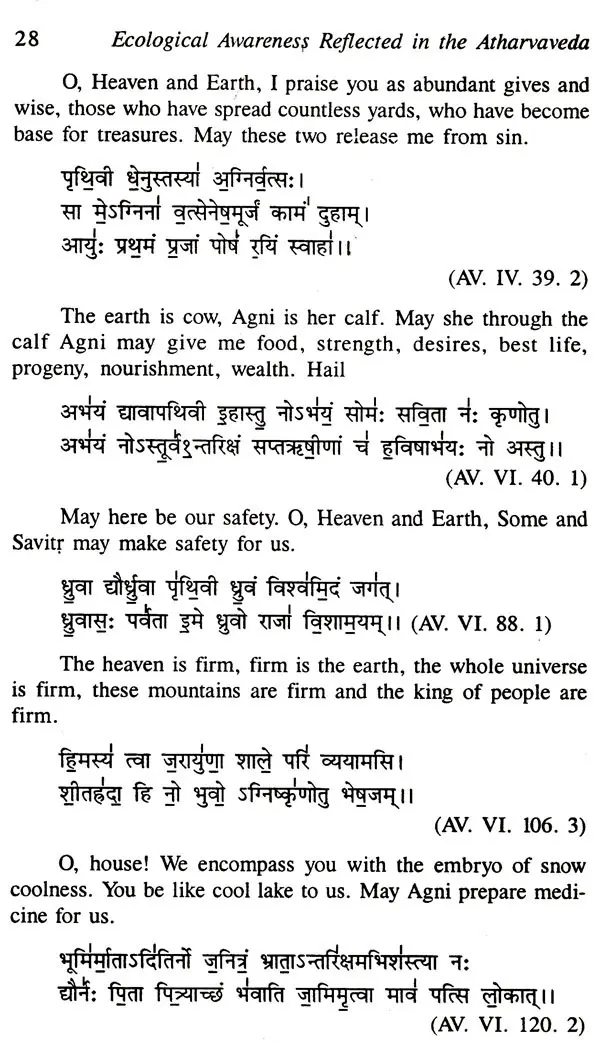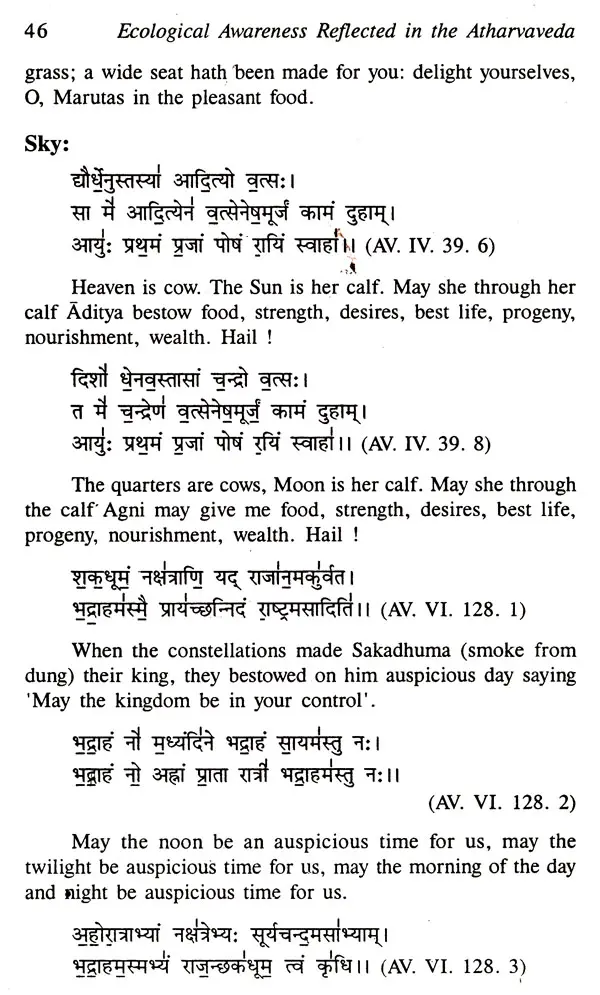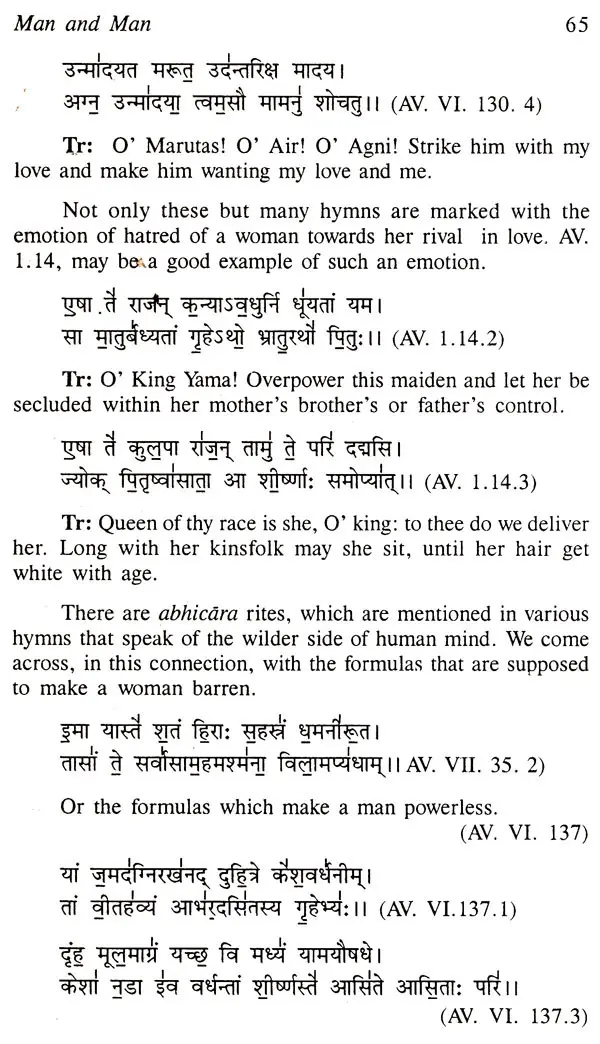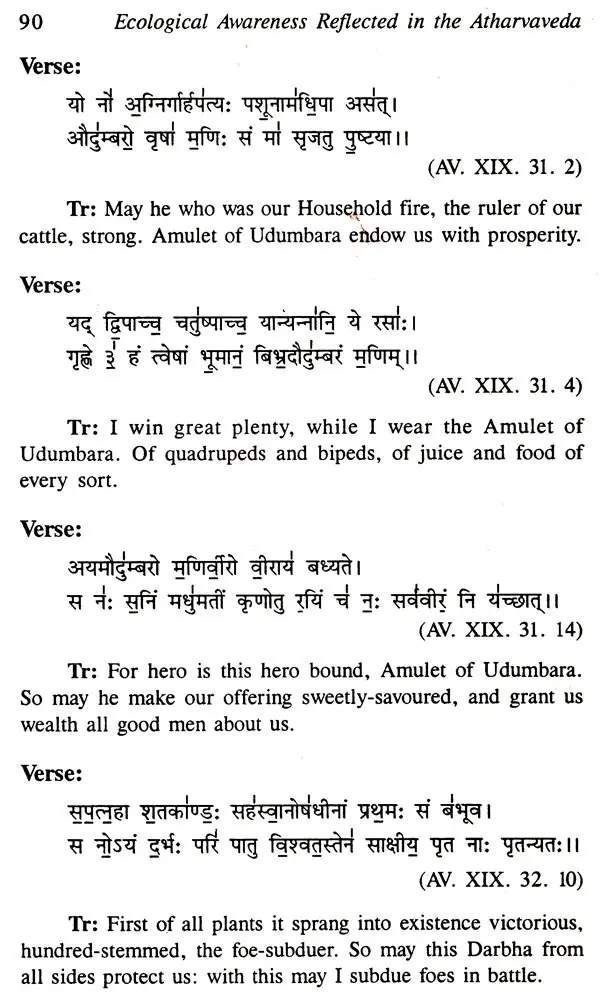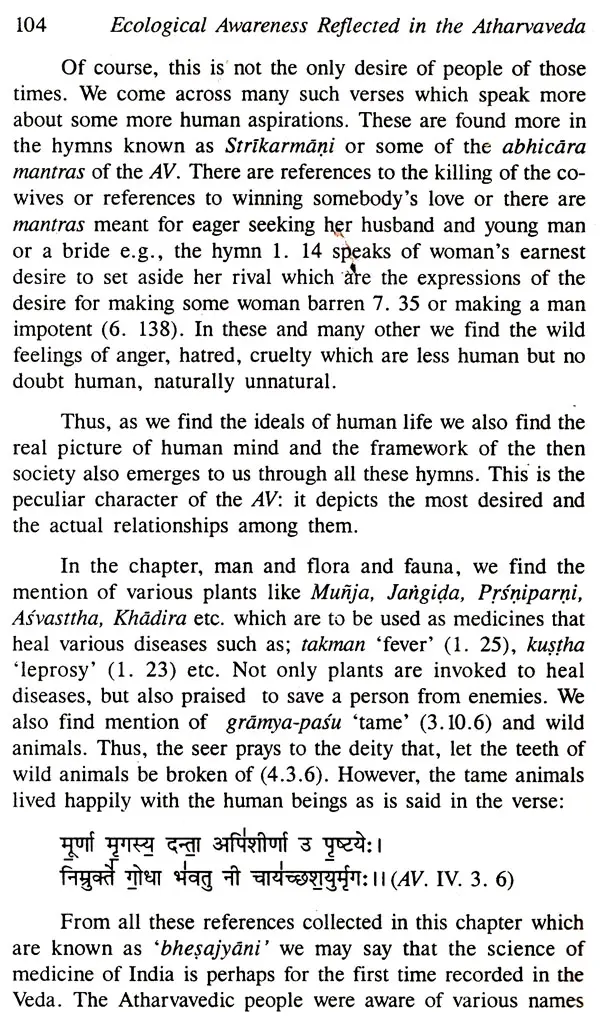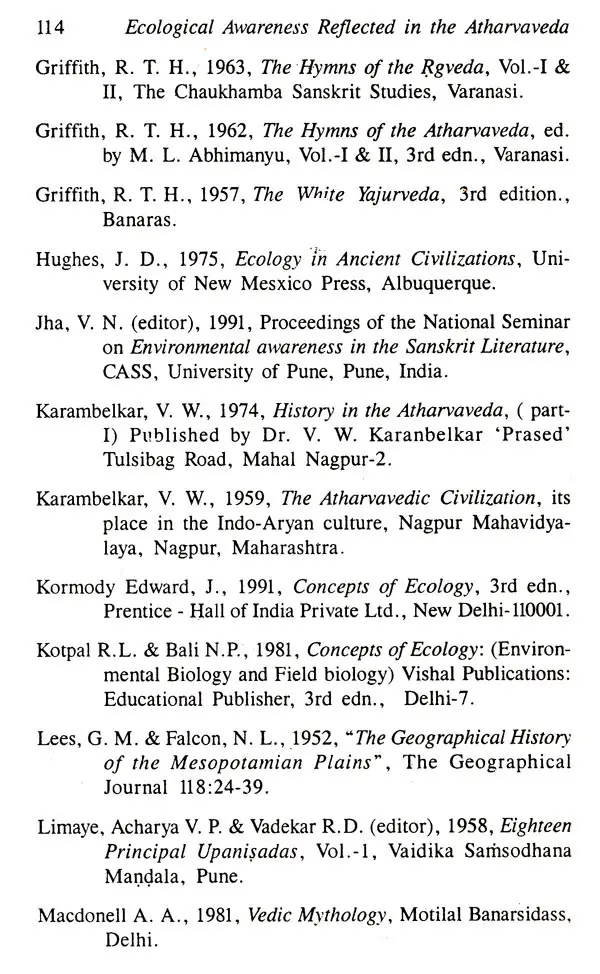
Ecological Awarness Reflected in the Atharvaveda
Book Specification
| Item Code: | UAO021 |
| Author: | Niranjan Jena |
| Publisher: | Bharatiya Kala Prakashan |
| Language: | Sanskrit Text with English Transliteration |
| Edition: | 2002 |
| ISBN: | 8186050868 |
| Pages: | 140 |
| Cover: | HARDCOVER |
| Other Details | 8.80 X 5.50 inch |
| Weight | 340 gm |
Book Description
. What is it that we should known about our environment? What is it that relates us without environment? What is our relation with our environment? etc. are the questions which man has been to probe into.
. Our oldest literature namely the Vedas have ample references which reflect the thinking of Vedic people. The Vedas also contain various aspects of man's relationship with the environment. The basic philosophy seems to be that everything has come out of one singular source and hence each and everything in this universe is related with each and everything else.
. Attitude of domination arises from man's thinking that he is the supreme being and everything else is meant for his enjoyment which is never to be found in our ancient literature.
. The philosophical outlook, mentioned earlier, has appeared in the Ṛigveda, which is the oldest record of human intellectual activity. Just like the Rigveda, the Atharvaveda also holds a very special position in the whole mass of Vedic literature on account of its varied and many times unique contents. It is called the Veda of the masses for its more close relation with the common-man and his life.
We, however, are more interested here in looking into the ancient concept of ecology and man's thought concerning the same. The ecological history of India is not very different from any other country. In Indian writings right from the Vedas, Epics and Puranas etc. we find many references to ecological thought. Many ancient writers in Sanskrit described the importance of Vayu (gasses and air) Jala (water), Desa (topography) and time in the regulation of life. Similarly, the concept of Puncatativa (five elements) namely; earth, water, air, fire, sky reflect the idea of circulation of materials. Indians have always respected plants and animals. In this country. curring green tree has been considered a sin and planting tree is a charity.
The eminent scientist Robert W. Sussman in his book Primate Ecology (p.1), classified ecological inquiry into three major heads namely; (i) general descriptive natural history, (ii) problem oriented field and research, (ii) purely theoretical studies. This present study deals with the first one, i. e., general descriptive natural history. This exactly is the nature of our study, i. e., we are concerned here only with the ecological awareness of the Indians at the time of the Vedas which will be proved on the basis of the materials extracted from the Atharvaveda.
In the modern times however, due to the concept of ecology, dire necessity of the hour ecology is studied from various angles. Now it is fully developed science that deals mainly with the modern problems caused by the ecological imbalance and strives hard to seek solutions for those.
We should be clear that, it is not a scientific study, in the sense that this study has no claim whatsoever as to make so far as ecology as far as a science is concerned. To explain: This study does not necessarily deal with the problems of imbalance etc. in the natural elements caused by various factors which are basically rooted in the ecological imbalance or it does not give either of any theoretical solutions to such problems, but it is a study of human awareness and that of human behavior towards nature at the time of the Atharvaveda. It has been suggested that the study of the entire Atharvaveda from the angle of ecology which may give insight to many aspects of human treatment to environment.
**Contents and Sample Pages**
